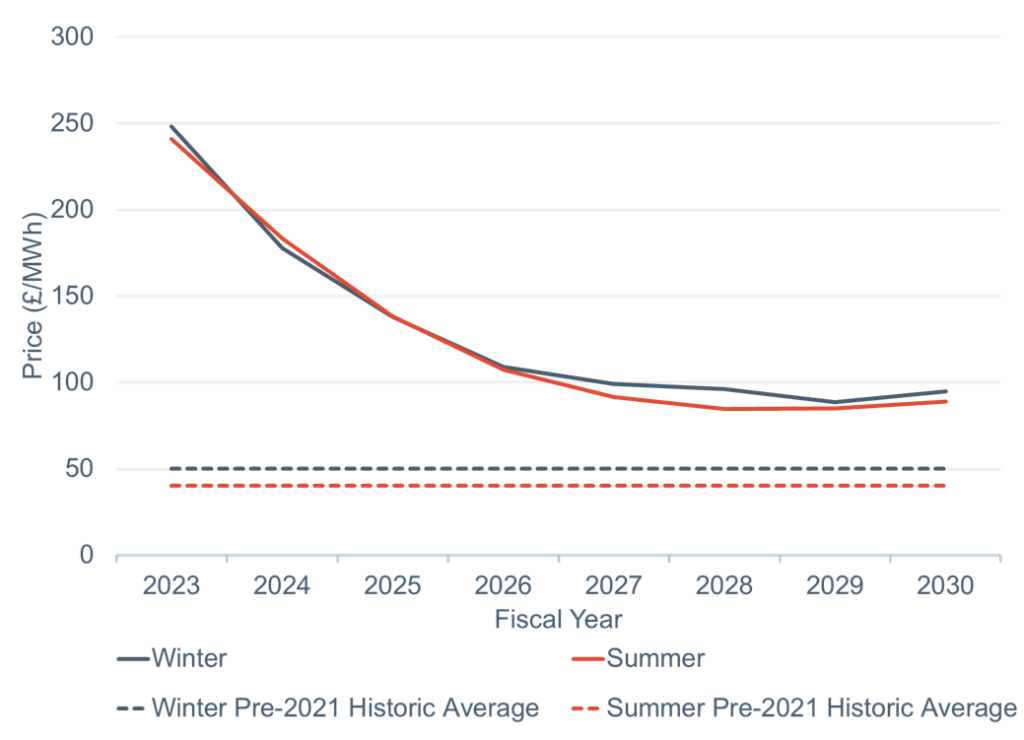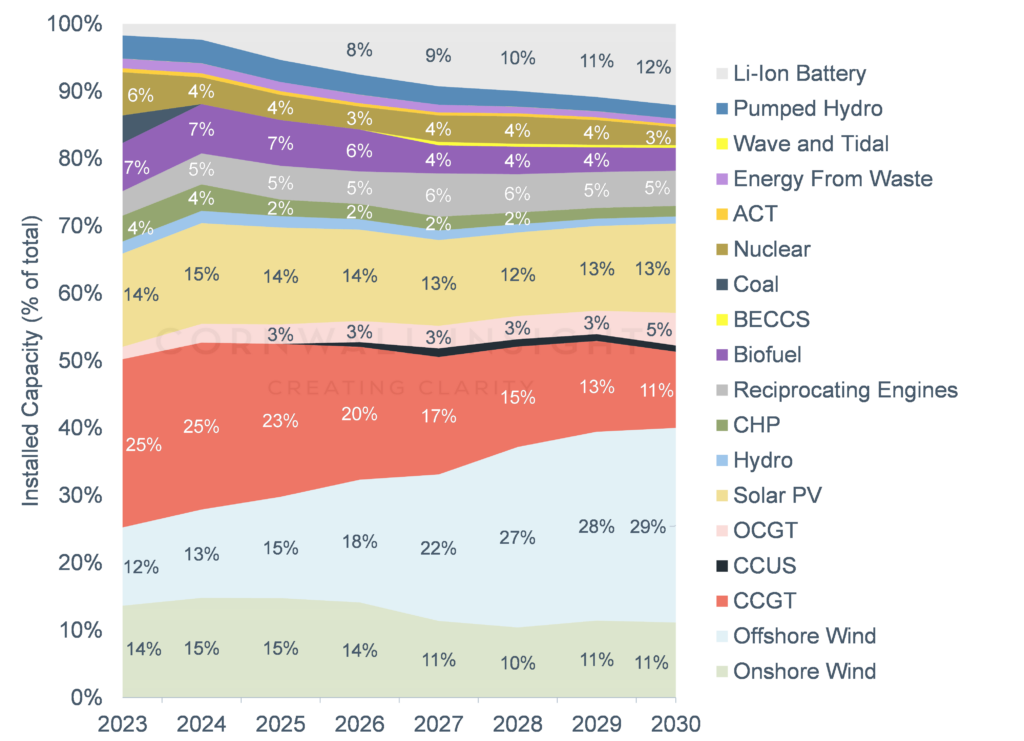New data from Cornwall Insight has shown a drop in our predictions for power prices up to 2030 as Europe secures alternative energy supplies to compensate for reduced gas flows from Russia. The data included in our fourth 2022 – GB Power Market Outlook to 2030 – has shown price forecasts drop by over £50 per MWh, compared to our Outlook from the third quarter of 2022. A more secure gas supply and electrification of the network have both contributed to the longer-term fall.
Predictions have also dropped in the short term as the mild winter and healthier storage volumes going into Summer 23 help to reduce gas prices.
Prices were already predicted to drop in the 2020s as higher marginal cost fossil fuel-fired plants retire and new offshore wind turbines are built to meet the government’s 2030 wind generation target. The recent fall in the gas forward curve, partly due to Europe’s new LNG terminals and imports from Norway, will make periods of low renewable availability cheaper, this has lowered our power price predictions further.
Despite the drop, figures remain significantly above pre-pandemic levels, with little indication that power prices will resemble so-called “normal” levels for some time. Higher power prices are likely to have an impact on end users, with businesses and households seeing comparatively high bills for the next decade.
Figure 1: Power price forecasts – average price per fiscal year

Source Cornwall Insight Benchmark Power Curve
Figure: Future electricity generation capacity breakdown

Source Cornwall Insight Benchmark Power Curve
Tom Edwards, Senior Modeller at Cornwall Insight, said:
“The energy market in 2022 was shaken by geopolitical concerns, as cuts to Russian gas flows coupled with reductions in French nuclear output, threatened supply and caused power prices to soar. Europe’s overreliance on Russian imports has, at least for now, been compensated for and consequently, our power predictions for the mid to late 2020s look a little less daunting.
“It is important to keep the drop in perspective, our predictions still show power prices soaring way above historic levels until the end of the decade and potentially beyond. While new sources of energy for Europe may have helped to balance the market, they are by no means a fix, and still leave the continent significantly reliant on volatile imports.
“The rational long-term route away from instability, high cost and high bills, is to increase renewable energy. Power from sources such as offshore wind deliver relatively low marginal costs and increased security; however, reaching renewables targets will require a steady stream of investment from both government and business, which is by no means guaranteed. It is important that the UK and, indeed, the rest of Europe stay on track with their low-carbon ambitions.
“While pre-pandemic prices may, at least for the next decade, be a pipedream, a continued focus on delivering sustainable, secure, low-carbon energy will hopefully keep power prices on a steady downward trajectory, helping to reduce bills and ensure the UK reaches its net zero goals.”
–Ends
Notes to Editors
More information:
If you would like to find out more on our Benchmark Power Curve service please contact:
Tom Ross
Phone: +44 (0) 208 0169 159
Email: t.ross@cornwall-insight.com
You can also find out more on our website: Benchmark power curve
For more information on the media release, please contact: Verity Sinclair at v.sinclair@cornwall-insight.com
To link to our website, please use: https://www.cornwall-insight.com
About the Cornwall Insight Group
Cornwall Insight is the pre-eminent provider of research, analysis, consulting and training to businesses and stakeholders engaged in the Australian, Great British, and Irish energy markets. To support our customers, we leverage a powerful combination of analytical capability, a detailed appreciation of regulation codes and policy frameworks, and a practical understanding of how markets function.

